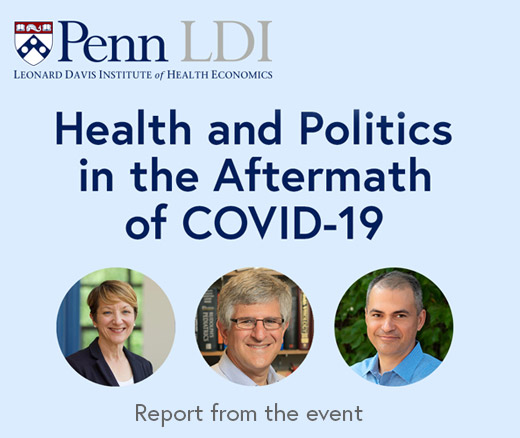
Contradictions That Confuse Federal Food Policies
Announcing Bold New Goals While Crippling the Infrastructure Needed to Achieve Them
Population Health
In Their Own Words

The following excerpt is from an op-ed that first appeared in Stat News on November 5th, 2024.
In a viral TikTok, a woman in the emergency room shares a message questioning why so many women in their 30s struggle with cancer and infertility, and suggests that birth control’s long-term hormonal disruption is the cause. Another influencer mocks the FDA inserts that accompany birth control, unfolding the long lists of side effects in videos to humorously repurpose them as “blankets” for napping or as tools for helping men grasp the harsh realities their partners face to prevent pregnancies. That TikTok has received 2.6 million likes and 21,000 comments.
Such portrayals exaggerate side effects and are spreading misinformation that could lead to unwanted pregnancies and other problems. Contraception faces daily attacks on platforms like TikTok and YouTube, where influencers often highlight the perceived dangers of hormonal birth control, such as the pill, while urging viewers to discontinue effective care and return to a more “natural” state.
In a 2023 study that I did with a colleague, 74% of YouTube influencers sampled who spoke about birth control encouraged discontinuation of contraception. A 2024 TikTok study by my team found that nearly 50% of the posts about birth control that we analyzed promoted the same idea, with TikTok creators identifying 57 alleged negative side effects of hormonal contraceptives.
These claims are usually based on personal anecdotes, not scientific evidence. My latest research suggests that when women ages 18-29 perceive an influencer as more trustworthy or as having greater expertise, they are more likely to intend to use less effective non-hormonal options, like fertility tracking, aka the rhythm method, even if they are currently using hormonal birth control like the pill, IUDs, implants, vaginal rings, and injections. Today, the rhythm method often involves using period tracking apps to identify when they might be most fertile and abstain from sex then.
As a scientist and 15-year birth control pill user who has never experienced negative side effects, I was shocked to see this content on my TikTok and Instagram feeds. Although I’ve never relied on menstrual cycle tracking apps, I know several people who did, resulting in unintended pregnancies, including a friend’s. Before using the tracking app, she used the birth control pill but wanted to find an alternative that didn’t involve taking medication. An unintended pregnancy came as a serious shock to her and her partner. A scenario like this could be devastating for a single mother.
Read the entire op-ed here.


Announcing Bold New Goals While Crippling the Infrastructure Needed to Achieve Them

Promising New Evidence and What’s Next

From 1990 to 2019, Black Life Expectancy Rose Most in Major Metros and the Northeast—but Gains Stalled or Reversed in Rural Areas and the Midwest, Especially for Younger Adults

A Penn LDI Seminar Focuses on Why They’re Important for the Future

Former Philadelphia Health Commissioner Warns That Gutting the CDC, Undermining Vaccines, and Politicizing Science Will Leave the U.S. Dangerously Unprepared for the Next Pandemic

Rural Parents Had More Emergency Visits and Insurance Loss Than Urban Peers, an LDI Study Shows. Integrated Baby Visits Could Help All Parents Be Healthier